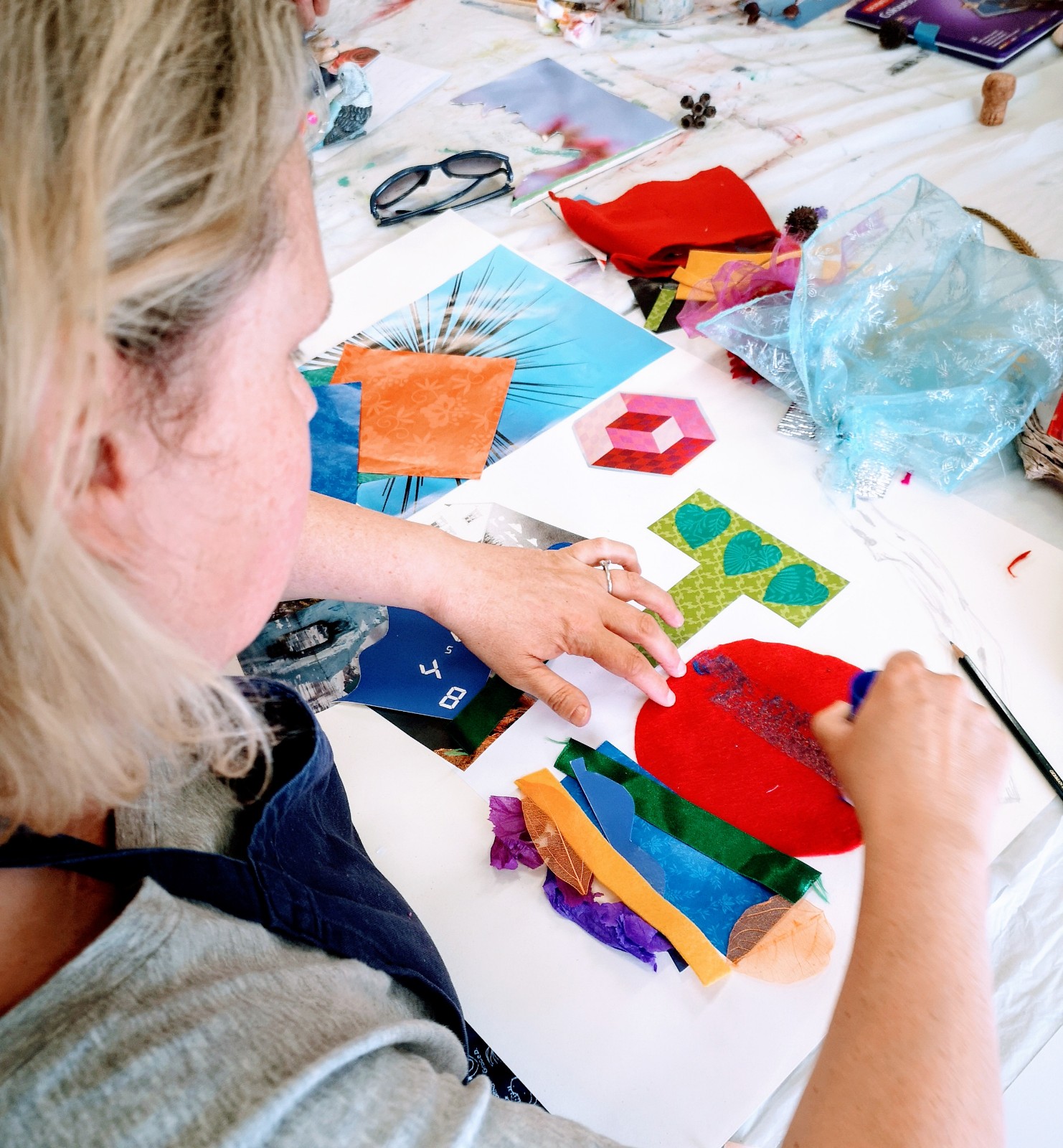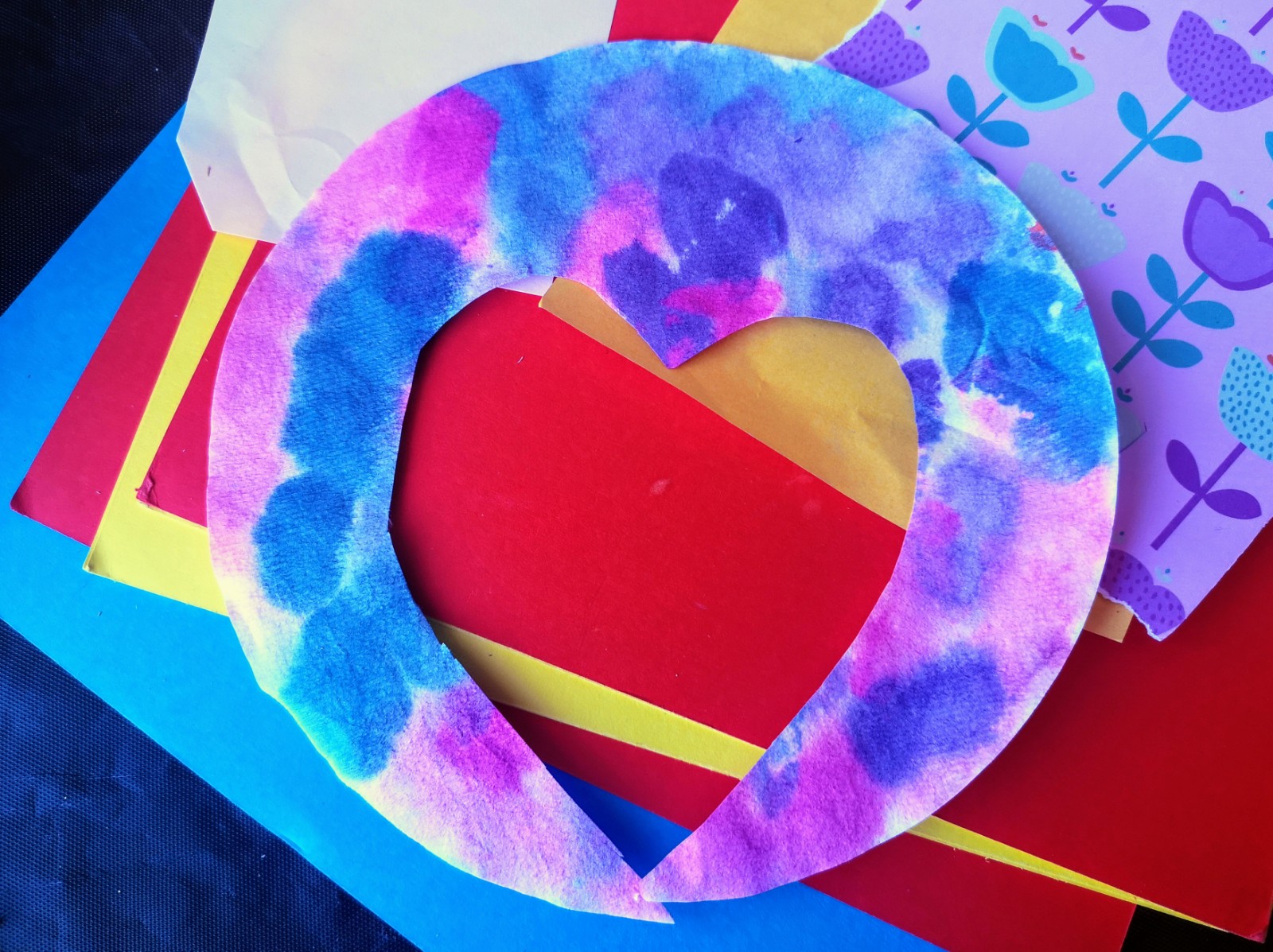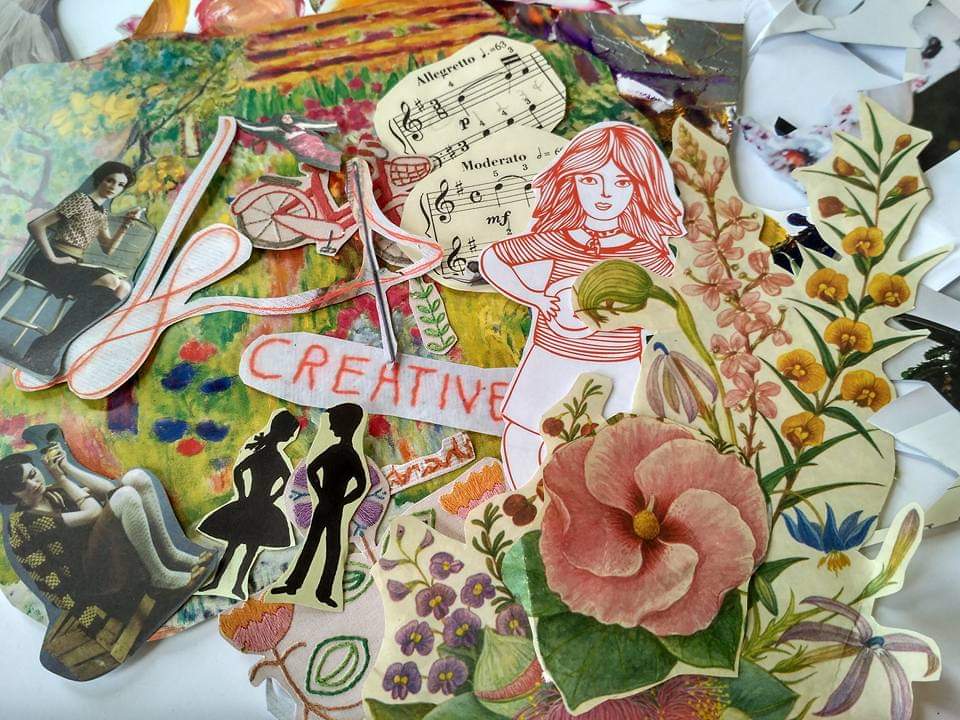
Art therapy focuses on the emotions within us, encouraging you to explore your inner experience—your feelings, perceptions, and imagination.
Creative art therapy is a therapeutic approach that uses various forms of art-making, such as drawing, painting, sculpture, and movement, to help individuals express themselves. It provides a safe and supportive environment for people to explore their thoughts and emotions through creative expression, facilitating personal growth and healing.
Art therapy can be used to relieve stress or tension and as a mode of self-discovery. It can provide a sense of safety, empowerment, and relief from symptoms of anxiety and depression through self-expression.
“Many people can benefit from a creative outlet, and art therapy is appropriate for anyone interested in learning about our personal ways of being in the world.”
Although we use various art forms such as drawing, painting, sculpting, movement, and words, the emphasis in art therapy is not on acquiring new art-making skills or techniques. Instead, it is about using different art modalities to express what might be difficult to convey through traditional communication methods. Through my art practice and work with groups and individuals, I have learned that art-making is a powerful way to communicate when words are not enough, allowing the expression of emotions that are hard to articulate.
My approach to Art therapy
In my practice, I embrace an emergent approach to art therapy. This means we don’t follow a predetermined path or aim for a specific outcome. Instead, we allow the creative process to guide us spontaneously. You will lead the way, and I will support your unique journey of discovery.
I follow your lead, accompanying you through your exploration without judgment or prejudice. I have learned to not only listen to your words but also to observe your body language and gestures to gain a deeper understanding of your overall mood. I take the time to listen and observe, finding the best ways to communicate and support you in your creative process. Having control over your preferred ways of expression is empowering and helps you take ownership of your journey. It creates a space for autonomy and personal growth. I understand that in a nurturing environment, art-making and following your calling can be an immensely transformative experience.
Additionally, I practice trauma-informed care, which means I am sensitive to the impact of trauma and prioritize creating a safe, supportive environment. This approach acknowledges the widespread nature of trauma and its effects, ensuring that our work together is respectful and empowering, avoiding any potential re-traumatization.
I also adopt a holistic approach to therapy, considering the interconnectedness of mind, body, and spirit in the healing process. Through embodied practices in art therapy, we engage in activities that integrate physical movement and sensory experiences, promoting a deeper connection with oneself and enhancing overall well-being.
I seek to see and take into account all of you, accepting you for who you are.

The MIECAT Institute Therapy Model
The MIECAT Institute Therapy Model is at the heart of my practice. This approach to art therapy is based on a person-centered therapy model, emphasizing equality between therapist and client in a non-hierarchical relationship. This ensures a collaborative and respectful environment for healing and growth.
Values and Ethics
Safety
When working with groups and individuals, I always ensure to create an inviting and safe space for sharing the art-making process. This space is respectful of and responsive to, the preferences, needs, and values of all participants.
Acceptance
I strive to see and accept all aspects of you, valuing you for who you are. The person-centered approach supports a respectful and empathetic environment, fostering acceptance and understanding.
Empathy
I meet my participants with an honest, empathetic approach, which helps create trust and comfort in our relationship. This empathetic connection is crucial for a supportive and healing therapeutic experience.
Important Things to Know
No Art-Making Experience Required
You do not need any prior art-making experience to participate in art therapy sessions.
No Artwork Interpretation
During a creative art therapy session or workshop, I do not interpret your artworks. Your creations are for your self-expression and understanding.
Collaborative Support
I work in collaboration with you to support your path of discovery and expression. Your journey is unique, and I am here to accompany and support you every step of the way.
